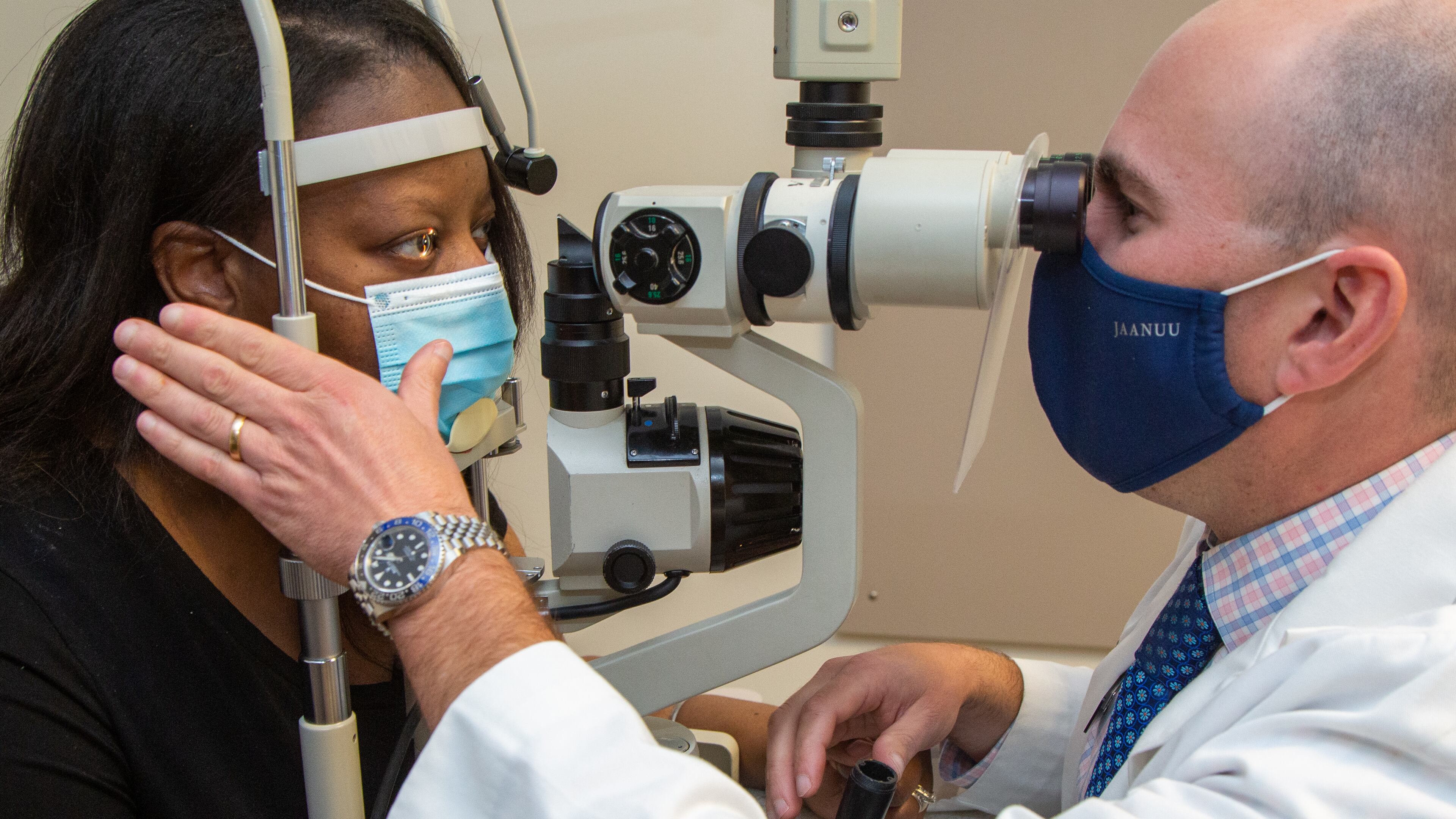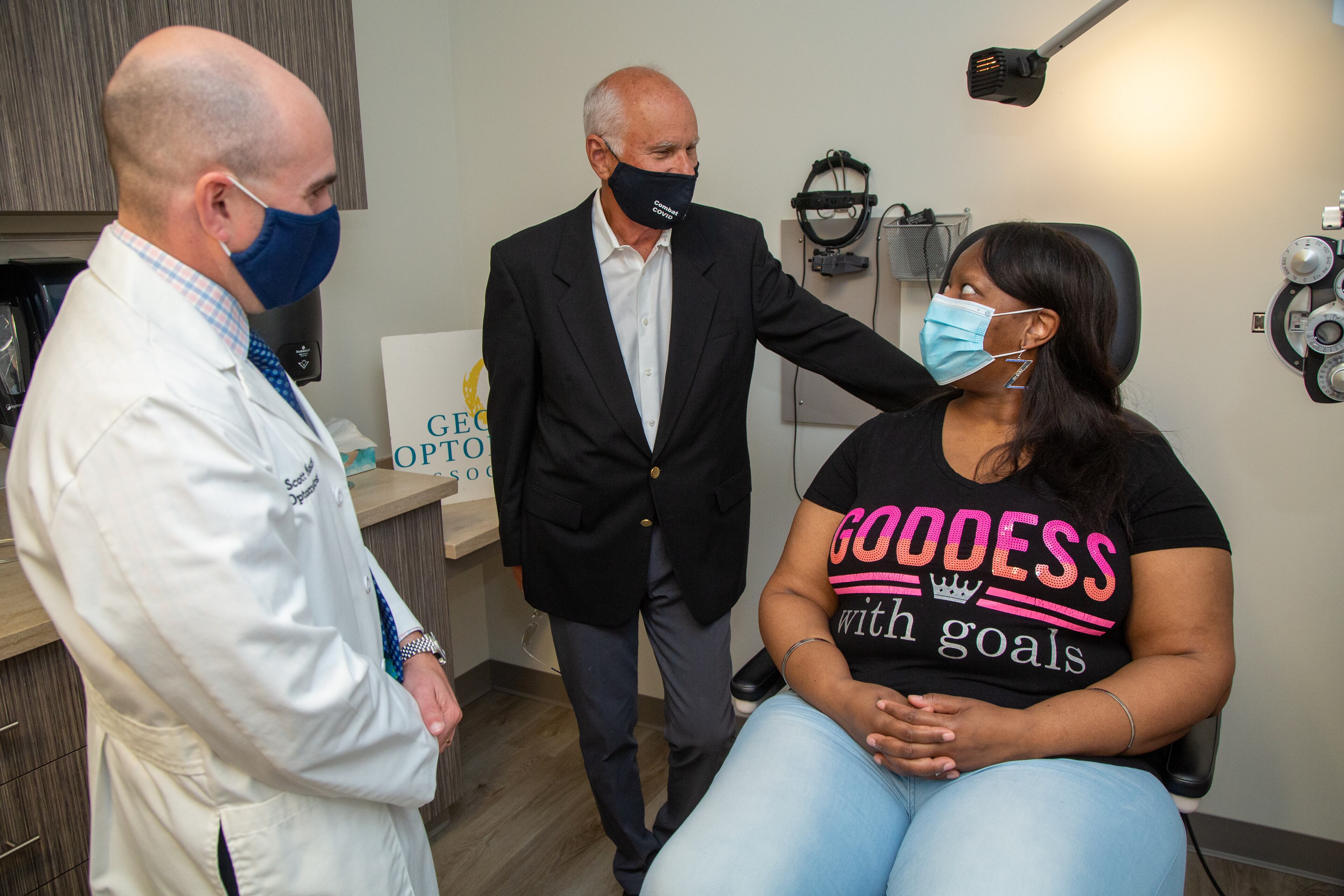Cancer survivor surrounds herself with positive people, thoughts

Jenita Holbrook was driving her two young daughters to school one day and asked: “Hey girls – is it foggy out?”
“No, Mommy, the sun is shining,” they said.
Within days, Holbrook couldn’t read the largest letters on an eye chart.
But the critical nature of her declining vision really became clear soon after when Holbrook looked in the mirror and realized she could only see half of her face. The normally strong woman was curled up in a corner and crying when husband Dorion came home from work that day.
Frantic to find answers and help for her, Dorion Holbrook called one doctors’ office, then another.
That would be a turning point for now-40-year-old Jenita Holbrook of Atlanta, who six years later continues to lean on God, her family, and others for strength.
“They all give me positive energy,” she said. ‘That’s all I ask for: positive thoughts, positive energy, positive statements so I can have a positive mind.”
On that gut-wrenching day back in May of 2015, Dorion Holbrook rang doctors’ offices well beyond normal work hours.
At family-operated Roswell Eye Clinic, optometrist William “Billy” Moscow picked up the phone. Could Moscow do what other doctors hadn’t? Could he find a cause and fix for his wife’s vision loss, the desperate voice on the other end asked.
Moscow told Holbrook to have his wife at the clinic early the next morning so his son, optometrist Scott Moscow, could perform a battery of tests. Five hours later, the doctors put their professional connections to use so Jenita Holbrook could head straight from their office to see an ocular neurologist.
The Moscows, both members of the Georgia Optometric Association, knew that not only her sight but her life could be at stake.

The neurologist diagnosed Holbrook with a rare brain tumor, Grade III Astrocytoma. The tumor had grown so large it had severely damaged her optic nerve.
Had she not received help when she did, “she would have been lights-out blind with no vision whatsoever,” Scott Moscow said.
Surgeons removed the tumor, but it came back two years later.
Chemotherapy and other treatments followed, as did visits to various doctors, including a cancer specialist in Germany. After making five trips across the ocean, Holbrook was told she was no longer eligible for treatments there because the tumor had returned.
Today, Holbrook has what’s termed “functional blindness.”
She can do things around the house, like cook and clean and she savors the time she has with her husband and two daughters, who are now 12 and 13.
“I can still see colors. I can still get in and out of doors,” Holbrook said. “I have met a lot of people who are unable to do the things that I can do.”
She prays that God will give her the mindset, happy thoughts, and happy memories she needs to keep a smile on her face.
“He does a pretty good job at it,” Holbrook said. “He’s God, you know.”
She hopes people can learn two valuable lessons from her experience: be quick to react to changes in the body, especially eye problems, and seek out doctors who care and are willing to open doors to help.
Holbrook refuses to listen to any negative talk and prays one day she’ll find doctors who can restore her vision.
“I wait patiently,” she said. “I know He is going to, in due time, do whatever He needs to do.”
What inspires Jenita Holbrook?
She says she’s inspired by God who has made it possible for her to keep up her energy, keep a smile on her face and be there for her loving husband and two daughters.
As she’s traveled the world, she says that people will say: “I thought you couldn’t see anything. I thought you were blind.”
She said she responds: “I am. However, it is not dark ... I still see colors. I can still get in and out of doors.”
The positive energy she receives from others enables her to pick herself up and keep trying to obtain the goals she had prior to her vision loss.
More Stories
Keep Reading

